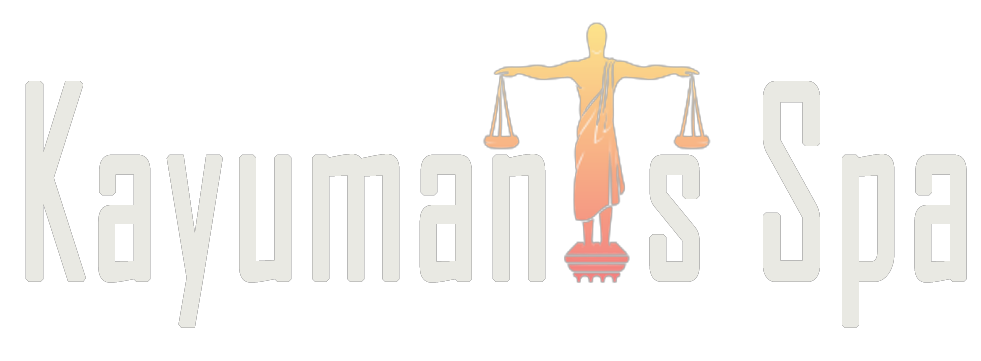How to Succeed and Thrive in the Competitive World of Labor and Employment Law Jobs
Are you interested in a career in labor and employment law? The legal field can be highly competitive, but with the right strategies, you can navigate the waters and find success. In this article, we will provide you with essential advice on how to succeed and thrive in the competitive world of labor and employment law jobs.
Contents
- 1 Skills and Qualifications Needed for Labor and Employment Law Careers
- 2 Job Opportunities in Labor and Employment Law
- 3 How to Stand out in the Competitive Job Market
- 4 Networking and Building Connections in the Industry
- 5 The Importance of Internships and Practical Experience
- 6 Continuing Education and Professional Development for Labor and Employment Law Professionals
Skills and Qualifications Needed for Labor and Employment Law Careers
To excel in labor and employment law jobs, it’s crucial to have a strong foundation of skills and qualifications. First and foremost, a solid understanding of labor and employment laws and regulations is essential. This includes knowledge of employment discrimination, wage and hour laws, collective bargaining, and workplace safety.
In addition to legal expertise, strong analytical and research skills are vital in this field. As an attorney, you will often be tasked with analyzing complex legal issues and researching precedents to build your case. Being able to think critically and present persuasive arguments is key to success.
Excellent oral and written communication skills are also essential. As a labor and employment lawyer, you will be interacting with clients, opposing counsel, and judges on a regular basis. Being able to articulate your thoughts clearly and effectively is crucial in advocating for your clients’ interests.
Finally, having a strong work ethic, attention to detail, and the ability to handle high-pressure situations is important in labor and employment law jobs. This field often involves tight deadlines and demanding clients, so being able to stay organized and remain calm under pressure is essential.
Job Opportunities in Labor and Employment Law
Labor and employment law offers a wide range of job opportunities, both in the public and private sectors. In the public sector, you may find employment with government agencies such as the Equal Employment Opportunity Commission (EEOC), the Department of Labor (DOL), or state labor departments. These agencies are responsible for enforcing labor and employment laws and often hire attorneys to handle legal matters.
Private law firms also offer a multitude of opportunities in labor and employment law. These firms range in size from small boutique practices to large international firms. Working at a law firm allows you to gain valuable experience and work with a diverse range of clients, including both employers and employees.
In-house legal departments of corporations and organizations also frequently hire labor and employment attorneys. These roles involve advising the company on compliance with labor laws, handling labor disputes, and providing legal support to human resources departments.
Additionally, there are opportunities for labor and employment lawyers to work in academia, teaching and conducting research on labor and employment law. This can be a rewarding career path for those who are passionate about education and making a difference in shaping labor and employment law policy.
How to Stand out in the Competitive Job Market
In a competitive job market, it’s essential to find ways to stand out from the crowd. Here are some strategies to help you differentiate yourself and increase your chances of landing a labor and employment law job:
- Craft an impressive resume: Your resume is often the first impression potential employers have of you. Tailor your resume to highlight relevant experience and skills. Include any internships, externships, or research projects related to labor and employment law. Be concise, yet descriptive, and use action verbs to showcase your accomplishments.
- Write a compelling cover letter: A well-written cover letter can make a significant impact. Use this opportunity to highlight your passion for labor and employment law and explain why you are interested in the specific firm or organization. Research the company beforehand, and customize your cover letter to demonstrate your knowledge and fit.
- Ace the interview: Preparation is key to a successful interview. Familiarize yourself with common labor and employment law interview questions and practice your responses. Showcase your knowledge of the field, your problem-solving abilities, and your ability to work well with others. Be confident, professional, and personable.
Networking and Building Connections in the Industry
Networking is crucial in the legal industry, and labor and employment law jobs are no exception. Building professional relationships can open doors to job opportunities and provide valuable insights and mentorship. Here are some effective strategies for networking in the labor and employment law field:
- Join professional associations: Joining organizations such as the American Bar Association’s Section of Labor and Employment Law or local bar associations can provide you with networking opportunities and access to resources and educational events. Attend conferences, seminars, and social events to meet professionals in the field.
- Utilize online platforms: Online platforms such as LinkedIn can be powerful tools for networking. Connect with attorneys and professionals in the labor and employment law field, join relevant groups and discussions, and share relevant articles and insights. Engage with others’ posts and participate in conversations to establish connections.
- Attend networking events: Take advantage of networking events specifically tailored to the legal industry. These events often provide opportunities to meet attorneys, recruiters, and potential employers. Come prepared with business cards and a concise elevator pitch to introduce yourself and make a memorable impression.
The Importance of Internships and Practical Experience
Internships and practical experience are invaluable in the labor and employment law jobs field. Not only do they provide an opportunity to gain hands-on experience and learn from professionals in the field, but they also allow you to build a network of contacts and demonstrate your commitment to the practice area. Here are some tips for securing internships and practical experience:
- Research opportunities: Research law firms, government agencies, and organizations that offer internships or externships in labor and employment law. Check their websites and reach out to their recruitment departments to inquire about available opportunities.
- Network with alumni: Reach out to alumni from your law school who are practicing labor and employment law. They may be able to provide insights and potentially offer internships or refer you to relevant opportunities.
- Apply early and be proactive: Internships in labor and employment law are highly competitive, so it’s important to apply early and be proactive. Tailor your application materials to the specific organization and highlight any relevant coursework or experience. Follow up with a thank-you note after interviews to express your continued interest.
Continuing Education and Professional Development for Labor and Employment Law Professionals
Continuing education and professional development are crucial for labor and employment law jobs professionals to stay up-to-date with the constantly changing laws and regulations in the field. Here are some ways to continue learning and growing in your career:
- Attend seminars and workshops: Stay informed about developments in labor and employment law by attending seminars and workshops. These events often offer insights from leading experts in the field and provide opportunities to network with other professionals.
- Obtain specialized certifications: Consider obtaining specialized certifications in labor and employment law to enhance your credentials. Organizations such as the National Employment Lawyers Association offer certification programs that demonstrate your expertise in the field.
- Engage in pro bono work: Volunteering your legal services through pro bono work not only allows you to give back to the community but also provides an opportunity to gain experience in labor and employment law cases. Many bar associations and legal aid organizations offer pro bono opportunities.
Succeeding and thriving in the competitive world of labor and employment law jobs requires a combination of skills, qualifications, networking, practical experience, and ongoing professional development. By following the advice and strategies outlined in this article, you can position yourself for success and stand out among other job seekers. Remember, perseverance and a passion for the field will ultimately drive your success in the dynamic and rewarding field of labor and employment law jobs.




